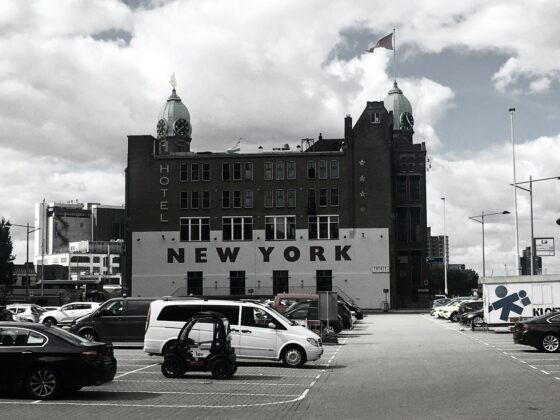Why a New Responsibility Approach is Needed
The current system is failing us. Today’s sustainability practices are not enough to meet the scale of our planetary and social crises. Since the Industrial Revolution, our relationship with nature has shifted dramatically – from interdependence and interconnectedness to extraction. Human activity has pushed the planet beyond safe operating limits. As Rockström and colleagues revealed in their 2024 study, six of nine planetary boundaries have now been breached, threatening the delicate balance that sustains life.
At the same time, communities around the world face rising inequalities, loss of services, cultural erosion and economic displacement. Climate change is not the only pressure; we are in the midst of a broader “metacrisis” that calls for a radical rethinking of our systems.
Hospitality, too, must face its limits. Despite decades of sustainability campaigns, most efforts in the industry remain centered around reducing and or mitigating negative business impacts with the goal of offsetting emissions or eliminating plastics (Legrand et al., 2023). Often times, these initiatives actually fall on the shoulders of guests: we all have been staying in an hotel that is asking us whether or not we would like to reuse our shower towels…this is a trivial yet clear example in our beautiful industry. All these actions are important, but insufficient; often times, they tend to be isolated initiatives that don’t alter the core business model of the organization, and rarely produce systemic change.
If we truly want to shift course, we need to go beyond harm reduction and embrace a regenerative approach: one that doesn’t just sustain, but actively heals and contributes to the ecosystems and communities we depend on.
From Net-Zero to Net-Positive
Sustainability can no longer be the end goal, it must become the starting point. Regenerative hospitality begins with a mindset rooted in authenticity and mutual flourishing. Instead of simply compensating for or reducing damage, we need to redesign our systems to create net-positive outcomes: operations that leave the local community and the nature – what we can call the place ecosystem, better than we found them (Inversini, 2024).
This new approach, support a radical shifts in hospitality strategy and operations: from a model of extraction to one of contribution. Hotels that focus solely on mitigating their negative impacts often uphold the status quo. In contrast, those that embrace net-positive principles actively contribute to the regeneration of place, creating healthier systems and generating a new balance – one where resilience and vitality can thrive across interconnected living systems (Figure 1).
What’s powerful, and specific to hospitality, is that this doesn’t only affect the place. It transforms people on all level. When a hotel is deeply embedded in its natural and social ecosystems, it reshapes the guest experience too. Travelers, staff and local communities all benefit from a space grounded in care, reciprocity and purpose.
— Source: EHL
The Case for Regenerative Hospitality
Regenerative hospitality is not “sustainability on steroids” (Inversini, 2024). It is a shift in worldview and business orientation. It’s about becoming an active participant in healing systems, not a passive player in minimizing harm.
Regenerative properties are defined by several characteristics:
-
Shifting Mindsets:
Regenerative hospitality begins with a mindset rooted in authenticity and mutual flourishing, transforming travel into a net-positive force for people, place and planet. -
Living Systems Thinking:
Regenerative hospitality embraces the interconnectedness of all actors and ecosystems, designing strategies that consider ripple effects and foster ecosystems’ vitality. -
Place-Based Wisdom and Purpose:
Regenerative hospitality honors local heritage, indigenous wisdom and community purpose, rooted in the unique identity and vocation of each place. -
Ecosystems of Cooperation:
Regenerative hospitality thrives through cross-sector partnerships and shared value creation, elevating communities as co-creators and catalyzing long-term, self-sustaining impact.
This is not about checking boxes. It’s about building an organization that is alive, interconnected with the all living systems of the place.
Not Just a Fad, but a True Business Orientation
Our research with regenerative pioneers (see: http://regenerativehospitality.org) reveals clear common ground among the trailblazers:
-
Regeneration builds on sustainability, but starts with a personal mindset shift:
every regenerative leader we met has undergone an inner journey, deepening their connection to the natural and social systems around them. For them, net-positive is not just a strategy, but a personal commitment and guiding principle. -
Regenerative leaders are rooted in their communities and natural environments:
They actively nurture the ecosystems they are part of, guided by a “nature-first” approach. Their daily operations are focused on enhancing the places and people they belong to – working with, not against, the living systems around them. -
Regenerative hoteliers lead purpose-driven businesses that thrive within complex, interconnected systems:
The regenerative companies we studied are not only viable – they are designed for shared value. The benefits they create are not confined to the business but flow outward, uplifting both communities and ecosystems. -
Authentic systemic regeneration translates into meaningful guest experiences:
These leaders create spaces where guests don’t just visit, but they genuinely connect. Through the business’s active engagement with nature and community, guests are invited into transformative and deeply authentic experiences.
It’s tempting to dismiss regeneration as the next buzzword. But that would be a mistake. When approached the right way this is not about marketing claims or feel-good branding. It is a response to systemic breakdown and an invitation to redesign how we work and how we host.
In a world of overshoot and breakdown, regenerative hospitality offers a way forward. It is not perfect. It is not easy. But it is necessary. It puts relationships to self, others, and the planet at the heart of the business.
In Closing
Regenerative hospitality is here to stay. It’s not a trend, it’s a transformation, it’s the start of a movement. And it calls on all of us, not just to rethink sustainability, but to reimagine our responsibility to the living systems we are part of.
Now is the time. The industry must move beyond minimization and mitigation, and start investing in regeneration: of ecosystems, of communities, of experiences – and of ourselves.
Join us on May 20–21 at the EHL Open Innovation Summit (https://innovationhub.ehl.edu/open-innovation-summit), where we’ll bring this conversation to life in the Regenerative Economies track. Together, we’ll explore bold ideas, learn from trailblazers and work on collaborative solutions to rethink the future of hospitality and travel, one that gives more than it takes.
References & further readings
Inversini, A. (2024). Regenerative Hospitality: what it is, what it is not, what it might be. Retrieved from: https://www.hotelyearbook.com/article/122000314/regenerative-hospitality-what-it-is-what-it-is-not-what-it-might-be.html
Legrand,W., Chen,J.S., Laeis,G., (2023). Sustainability in the Hospitality Industry: Principles of Sustainable Operations, 4th ed. Abington, Oxon: Routledge.
Rockström, J., Donges, J. F., Fetzer, I., Martin, M. A., Wang-Erlandsson, L., & Richardson, K. (2024). Planetary Boundaries guide humanity’s future on Earth. Nature Reviews Earth & Environment, 5(11), 773-788.











